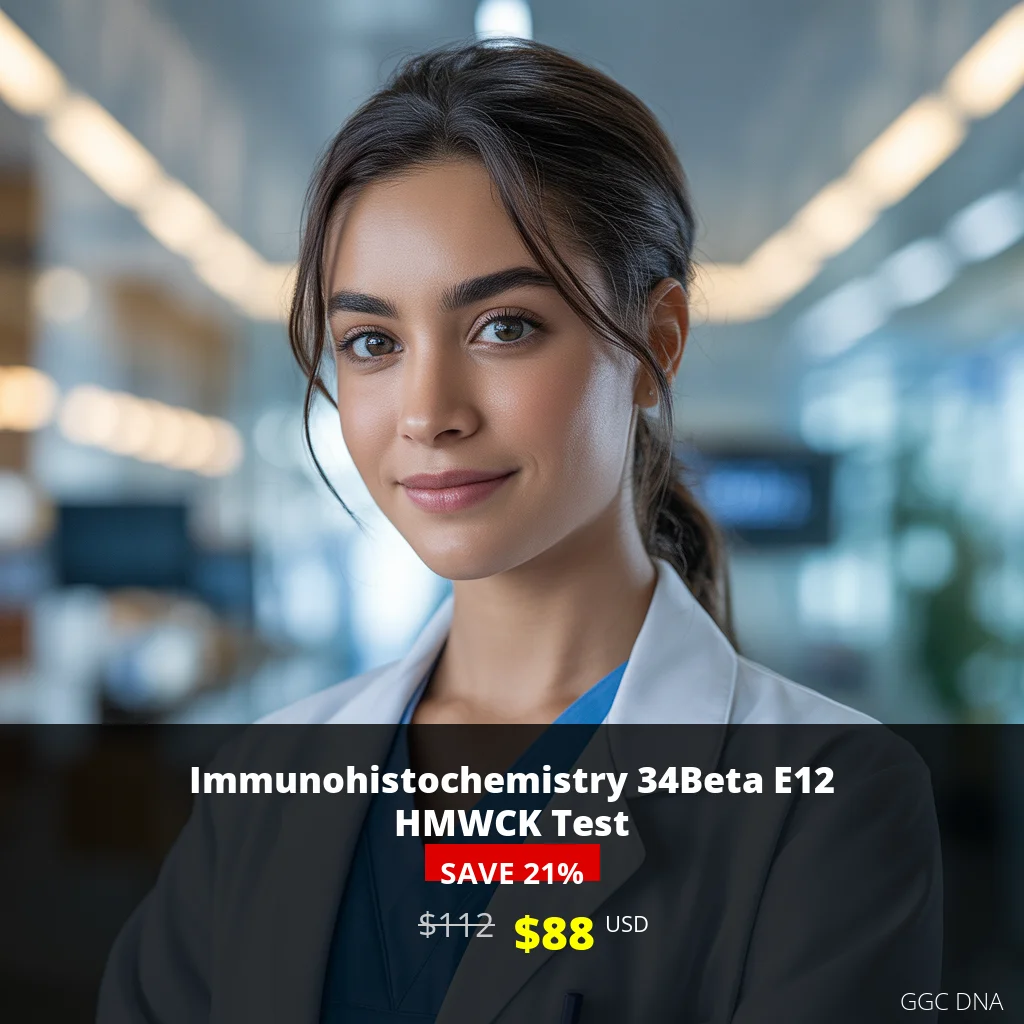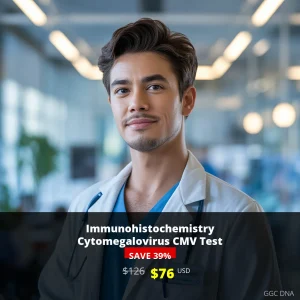Immunohistochemistry 34Beta E12 HMWCK Test
Understanding the Immunohistochemistry 34Beta E12 HMWCK Test
The Immunohistochemistry 34Beta E12 HMWCK Test represents a cutting-edge diagnostic approach in cancer pathology, specifically designed to detect high molecular weight cytokeratin (HMWCK) markers in tissue samples. This sophisticated immunohistochemical analysis plays a pivotal role in modern oncology by providing precise cellular-level information that traditional histopathology alone cannot reveal.
As a specialized diagnostic tool, this test utilizes monoclonal antibodies to target the 34Beta E12 epitope of high molecular weight cytokeratins, which are structural proteins found in epithelial cells. The presence or absence of these specific markers helps pathologists make critical distinctions between different types of tissue abnormalities, particularly in prostate cancer diagnosis and differentiation.
What Does the Test Measure and Detect?
The Immunohistochemistry 34Beta E12 HMWCK Test specifically identifies and measures:
- High molecular weight cytokeratin expression in epithelial cells
- Presence of basal cell markers in prostate tissue
- Differentiation between benign prostatic hyperplasia and prostate adenocarcinoma
- Cellular architecture and tissue organization patterns
- Molecular markers that indicate malignant transformation
This test is particularly valuable because it detects the absence of basal cells in prostate adenocarcinoma, which is a hallmark feature distinguishing cancerous tissue from benign conditions. The 34Beta E12 antibody specifically targets cytokeratins 1, 5, 10, and 14, providing a reliable marker for basal cell identification.
Who Should Consider This Test?
Clinical Indications and Symptoms
This advanced diagnostic test is recommended for patients presenting with:
- Elevated prostate-specific antigen (PSA) levels
- Suspicious digital rectal examination findings
- Atypical small acinar proliferation on initial biopsy
- High-grade prostatic intraepithelial neoplasia (HGPIN)
- Previous inconclusive prostate biopsy results
- Monitoring of prostate cancer treatment response
- Differentiation between benign and malignant prostate conditions
Patient Profiles Benefiting from Testing
The test is particularly valuable for:
- Men over 50 with prostate health concerns
- Patients with family history of prostate cancer
- Individuals with persistent urinary symptoms
- Patients requiring clarification of ambiguous biopsy results
- Those undergoing active surveillance for prostate cancer
Benefits of Taking the Immunohistochemistry 34Beta E12 HMWCK Test
Choosing this advanced diagnostic approach offers numerous clinical advantages:
Enhanced Diagnostic Accuracy
- Provides definitive differentiation between benign and malignant prostate tissue
- Reduces false-positive and false-negative diagnoses
- Offers molecular confirmation of pathological findings
- Supports more confident treatment decisions
Clinical Management Advantages
- Helps avoid unnecessary treatments for benign conditions
- Enables early detection of prostate cancer
- Supports personalized treatment planning
- Provides valuable prognostic information
- Facilitates appropriate monitoring strategies
Patient-Centered Benefits
- Reduces patient anxiety through clear diagnostic results
- Minimizes the need for repeated biopsies
- Supports informed decision-making about treatment options
- Provides peace of mind through accurate diagnosis
Understanding Your Test Results
Interpretation Guidelines
Your test results will be carefully analyzed by our expert pathologists and presented with clear clinical context:
Positive Staining Pattern
- Basal Cell Presence: Continuous or fragmented staining of basal cells indicates benign prostatic tissue
- Normal Architecture: Preserved basal cell layer suggests non-malignant conditions
- Reactive Changes: May show increased staining in inflammatory conditions
Negative Staining Pattern
- Absent Basal Cells: Lack of staining in suspicious areas may indicate prostate adenocarcinoma
- Malignant Transformation: Negative staining supports diagnosis of cancer when combined with other pathological features
- Diagnostic Confirmation: Used in conjunction with other markers for comprehensive assessment
Clinical Correlation
It’s important to understand that test results are interpreted in the context of:
- Clinical history and symptoms
- Other laboratory findings
- Radiological imaging results
- Overall pathological assessment
- Patient-specific risk factors
Test Pricing and Availability
| Test Description | Regular Price | Discount Price |
|---|---|---|
| Immunohistochemistry 34Beta E12 HMWCK Test | $112 USD | $88 USD |
Turnaround Time
- Sample Submission: Daily by 6 PM
- Standard Tissue Biopsy: 5 days
- Report Block: 5 days
- Large Complex Tissue: 7 days
Sample Requirements
For accurate testing, please provide:
- Tumor tissue in 10% formal-saline or formalin-fixed paraffin-embedded tissue block
- Ship at room temperature with proper packaging
- Copy of histopathology report
- Site of biopsy documentation
- Complete clinical history
Nationwide Availability
We proudly serve patients across the United States with convenient testing locations in all major metropolitan areas including:
- New York City and surrounding areas
- Los Angeles and Southern California
- Chicago and Midwest regions
- Houston and Texas locations
- Miami and Florida centers
- Philadelphia and Northeast facilities
- Phoenix and Southwest clinics
- San Francisco and Bay Area locations
Our network of certified laboratories ensures consistent quality and reliable results regardless of your location. Each facility maintains the same high standards of accuracy, precision, and patient care that have made General Genetics Corporation a trusted name in diagnostic testing.
Take Action for Your Health Today
Don’t leave your health to chance. The Immunohistochemistry 34Beta E12 HMWCK Test provides the clarity and confidence you need for proper diagnosis and treatment planning. Our team of experienced oncologists and pathologists are ready to help you understand your results and guide you toward the best possible outcomes.
Ready to schedule your test? Contact us today:
Phone: +1(267) 388-9828
WhatsApp: +1(267) 388-9828
Our patient care coordinators are available to answer your questions, help with insurance verification, and schedule your appointment at the most convenient location. Take the first step toward accurate diagnosis and peace of mind by calling us today.






